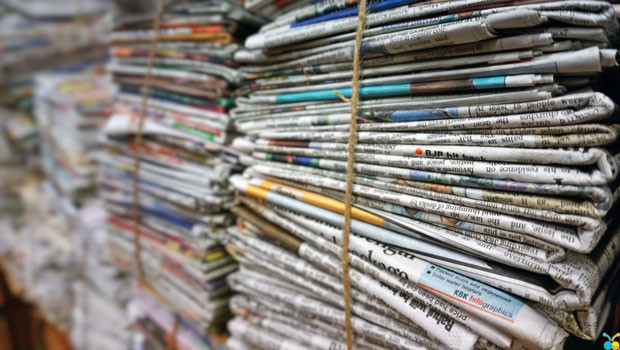Monday newspaper round-up: Aviva, NatWest, CAB Payments

A fashion industry push to reduce the environmental impact of the clothing it sells is being undermined by an ongoing addiction to buying new clothes, with the average Briton buying 28 items every year. Asos and Primark are among the big names signed up to Wrap’s voluntary environmental pact, Textiles 2030. – Guardian
Rishi Sunak will this week announce legislation for a new annual system for awarding oil and gas licences as part of a highly political king’s speech which the Conservatives hope will open up clear dividing lines with Labour. The government said the plans would protect thousands of jobs and bolster energy security, reducing the UK’s reliance on imports from hostile foreign regimes such as Russia, even though the UK has committed to move away from fossil fuels. – Guardian
Grant Shapps has warned Aviva against any “immoral” withdrawal of backing for defence companies, after a letter it sent to investors triggered a backlash from the Ministry of Defence. Aviva, which manages £221bn of assets including insurance and pension funds, told customers last week it would be selling out of “certain companies that do not meet our Aviva Baseline Exclusion Policy”. – Telegraph
NatWest is to launch an artificial intelligence (AI) chatbot that it claims will provide more human interaction to customers after closing hundreds of bank branches in recent years. The bot, built using technology from IBM, will employ so-called “generative” AI technology, similar to that of ChatGPT, which can hold human-like conversations with customers looking for information about the bank. – Telegraph
Shareholders in CAB Payments have called on regulators to investigate whether the prospectus for one of London’s biggest stock market flops this year misled investors. The initial public offering of CAB, promoted by JPMorgan and Barclays, has come under scrutiny after the company issued a profit warning four months after floating. The FTSE 250 foreign exchange firm, which specialises in processing payments to and from developing nations, floated in July with a valuation of £851 million, raising £335 million. It was London’s largest conventional IPO this year. Its market capitalisation has since collapsed to only £173 million, making it the world’s worst performing IPO this year, data from Bloomberg shows. – The Times
Dominic Chappell, who became engulfed in the BHS scandal, has been released from prison after serving half of his six-year sentence for evading tax. Chappell, 56, was released on parole from Guys Marsh prison in Dorset on Friday. BHS collapsed into administration in April 2016 just over a year after Sir Philip Green sold the chain for £1 to a consortium led by Chappell. – The Times